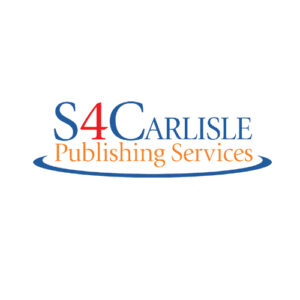Accessibility Challenges In eLearning
There is a statistic that L&D teams should consider when they design and deploy any form of employee learning. According to the Journal of Learning Disabilities, approximately 10% to 15% of employees in any large industry or business have learning disabilities. Most of our modern eLearning solutions focused on employee learning and training are designed with a person with no learning, cognitive, or physical disabilities in mind. Yet, as the statistic mentioned above makes plain, many industries utilize the services of employees with some form of learning disability or other.
The challenge then for eLearning vendors and learning experience designers is to create eLearning content and learning experiences that are free of any form of bias and easily accessible to all kinds of learners. This article will look at the accessibility challenges that need to be addressed to ensure a level playing field for all learners.
Identifying Learning Disabilities
A significant challenge for both the individual employees and HR or L&D managers is the ability to identify specific learning disabilities. Some people may not be aware that they have a learning disorder and may wonder why they are not able to learn and complete a mandatory digital learning course that other co-workers can complete easily. This is the reason why employment applications are evolving to accommodate details about any disabilities that potential applicants may want to voluntarily disclose. Learning disabilities are classified as follows:
- Dyslexia
A reading disorder that is associated with people skipping syllables and letters while reading and writing. - Dyscalculia
This disorder causes intense difficulty when making arithmetic calculations and performing basic operations like addition, multiplication, or division of numbers. - Dysgraphia
This is focused on challenges faced in writing. People tend to skip words and letters and have confusion in spelling words and using punctuation marks. - Dyspraxia
This is a specific issue that causes people to have issues with organization and planning and adapting to situations.
It is important to note that ADHD or attention deficit hyperactivity disorder and autism are not learning disabilities. An important factor to also note is that roughly half of the people with autism do have some form of learning disability.
There are specifically designed tests for both adults and young learners that help experts identify specific learning disabilities and disorders. In recent years, we are seeing an increasing number of private organizations including psychological profiling and personality traits tests to help identify how a potential employee will behave in a critical situation and this is again an extension of such tests.
Primary Accessibility Challenges That Learners With Disabilities Face With eLearning
Some of the accessibility challenges that learners with disabilities face when participating in an eLearning training program are listed below:
1. The Absence Of Closed Captions Or Subtitles
Subtitles add value to the content. People who are slow to comprehend the audio or video interactions on the screen can follow the subtitles instead, to understand what is happening.
2. Too Many Clickable Activities
People with difficulties in moving their hands quickly or who have problems with hand-eye coordination will struggle with a course which has a lot of clickable elements and activities. For such learners, there should be an option to complete the course with minimum clicks on the learning journey.
3. Flashy Animation And Loud Background Music
Some learners can be triggered by flashy animation, bright lights, and loud sounds or music. Learning experience designers should tone down the special effects. They should remember that they are creating learning programs.
4. Ambiguous, Or Lack Of, Clear On-Screen Instructions
Anyone who has spent time on a course that has a poorly designed interface will accept the fact that it can be extremely irritating not to know where to click to progress to the next page/screen, or not to know what the next steps are for the learner to perform. Learning experience designers must focus on the user and learner experience and provide clear navigation instructions within the eLearning program.
Designing Inclusive And Accessible eLearning
As eLearning vendors of repute, the focus is on us to take the initiative and create inclusive and accessible eLearning courses. It is not enough to just create courses that represent people from diverse races, different genders, and cultures. It is also important to pay heed to the different learners who make up the workforce. Some may have a known physical disability, others may have a known or unknown learning disability, which does not help them complete the eLearning program. Therefore, it is important to keep an open mind and be accommodative of the different challenges that a diverse learning audience faces, and to address them to the best of our abilities.
This can be done by adopting simple design and content tweaks. We should ensure that the learner and User Experience journeys are properly designed and offer the optimal experience. The use of standardized design elements, colors that are easy on the eyes, simple characters and icons, the right background voice for narration, and proper subtitles instead of machine-generated captions, can go a long way in making our eLearning programs better and well-suited for a wider audience. If the pioneering leaders of the eLearning industry and groups like ATD can sit together and come up with a set of guidelines that can be adopted by all, it would make things easier for everyone. What do you think? What steps is your organization taking to make its eLearning programs more inclusive and accessible to all? We would love to hear your thoughts on the topic.

